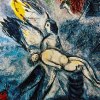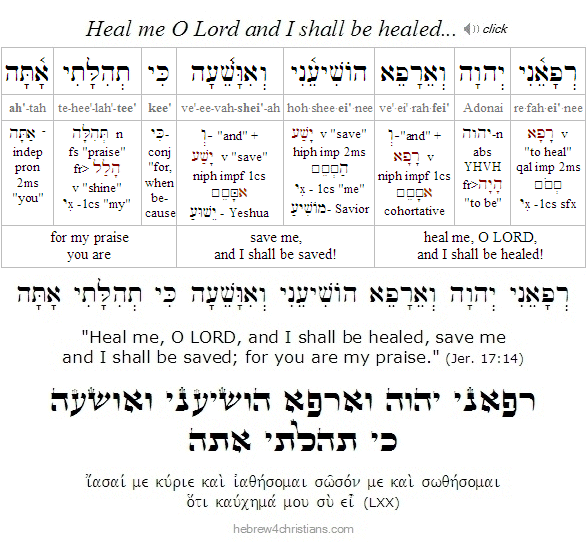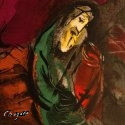|
In the Haftarah portion for Bechukotai, we see the prophet Jeremiah desperately appealing to the Jewish people before their destruction comes. Jeremiah cites Israel's idol worship, neglect of the shemittah commandment (Sabbatical year), and the general loss of trust in the LORD as the reason for their coming judgment. The prophet then sets up the contrast between trusting in man and trusting in the LORD. "Thus says the LORD: 'I will put a curse on people who trust in mere human beings, who depend on mere flesh and blood for their strength, and whose hearts have turned away from the LORD" (Jer. 17:5).
The only acceptable response light of God's inevitable judgment is heartfelt repentance.... "Blessed is the man who trusts in the LORD, whose trust is the LORD. He is like a tree planted by water, that sends out its roots by the stream, and does not fear when heat comes, for its leaves remain green, and is not anxious in the year of drought, for it does not cease to bear fruit" (Jer. 17:7-8).
Nonetheless, since heart is deceitful "above everything else" and "incurably bad" (אָנוּשׁ), Jeremiah wonders what can be done to change the people's direction. God answers by saying that He searches the heart and tests the mind, "to give every man according to his ways, according to the fruit of his deeds" (Jer. 17:10). Those who attempt to secure wealth by unjust means will be proven to be a fool (נָבָל). Jeremiah responds by exclaiming, "A glorious throne set on high from the beginning is the place of our sanctuary. O LORD, the hope of Israel (מִקְוֵה יִשְׂרָאֵל), all who forsake you shall be put to shame; those who turn away from you shall be written in the earth, for they have forsaken the LORD, the fountain of living water" (Jer. 17:12-13). The haftarah ends with an appeal for healing and salvation:
רפאני יהוה וארפא הושׁיעני ואושׁעה
כי תהלתי אתה
re·fah·ei'·nee Adonai ve·ei·rah·fei
ho·shee·ei'·nee ve·ee·vah·shei'·ah, kee te·hee·la·tee ah'·tah

"Heal me, O LORD, and I shall be healed;
save me, and I shall be saved, for you are my praise."
(Jer. 17:14)
Download Study Card


|




